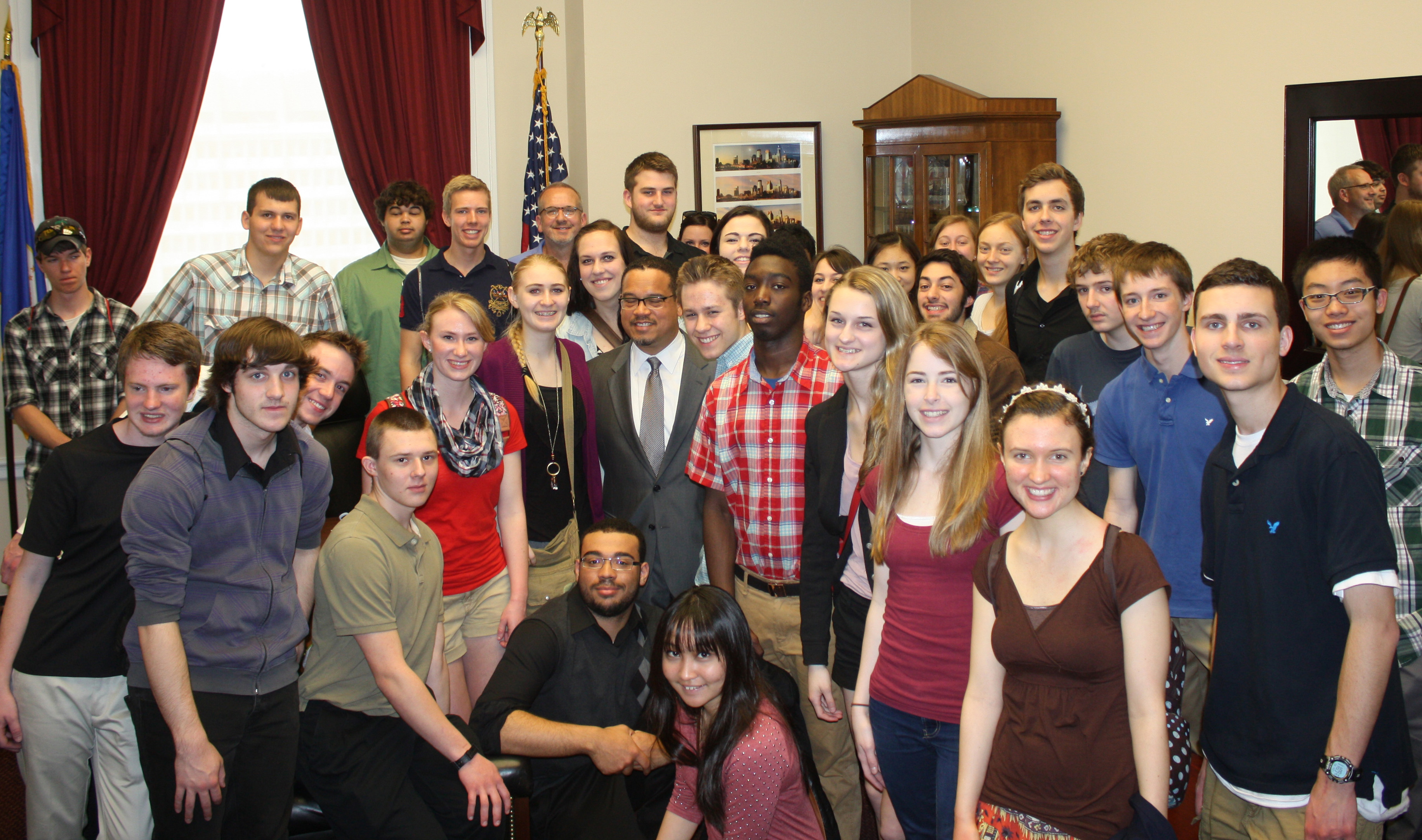
This post is by Guest Blogger Lydia Marcus, a student at Calvin Christian High School in Minneapolis, Minnesota. She wrote it following a recent class trip to Washington, D.C. where they visited the Enough Project offices and Capitol Hill, recounting the trip and the feeling of power she gained to personally make a difference in the world.
Does my vote matter? All voters are faced with this question, though perhaps unconsciously. Unfortunately, many American voters often come to the conclusion that their vote does not matter, and this political inefficacy is especially present in young voters. According to the Census Bureau, young voters have historically voted at lower rates than any other age group. This is a sad predicament to have, because each vote does matter. Ours is a government of the people, by the people, and for the people – and we can participate in government by voting. The juniors and seniors of Calvin Christian High School experienced some singularly convincing meetings that demonstrated that our votes do matter. As a part of our class trip to Washington D.C., students had the privilege of visiting the Enough Project and meeting with Representative Keith Ellison (D-MN-5).
On a rainy Wednesday, all 33 members of our group crowded into the Enough Project’s largest conference room. We sat around tables with Enough Project staff Rachel Finn and Annie Callaway, who led a discussion about the mission of the Enough Project, and the conflicts in Congo and Central African Republic (CAR). These struggles are expansive and complex. Additionally, they are thousands of miles away from where we live. How can we, as average high school students, aid in the fight against such large injustices taking place so far away?
The staff members of the Enough Project provided very tangible examples of how people like us can help. For example, companies who might be using conflict minerals from Congo, which help to fund atrocities, have a large influence on the mining industry, and young consumers have a large influence on these companies. Enough’s electronic company rating chart makes it very easy for students to send emails to encourage certain companies to promote a clean mineral trade. In addition, teenagers can vote with their wallets. By making educated and thoughtful purchases, we can influence the market. The compassion the staff members shared for the people of CAR and Congo was contagious. It inspired within each of us a desire to do something.
The next day, we visited the Rayburn House Office Building to meet with our Representative, Keith Ellison. Mr. Ellison spoke to us and patiently answered our questions about voter ID, the Affordable Care Act, and the economy for an hour. This was not the typical length of a meeting with a Representative, as they are very busy people. This generous meeting helped us, as students, relate to our government. It helped us realize that we can actually participate in our government. The senators and representatives seek to convey the voice of the people, and we are part of the people. These are basic realities that all high school students in the United States should know, but visiting Washington D.C. and speaking with a Congressman gave these facts more weight.
These two visits gave students a sense of empowerment; perhaps creating change in the world is more attainable, more possible than we had thought. Our senators and representatives in Congress may be more accessible than we think. No longer was Congress some mighty, distant body. No longer was the issue of conflict minerals a problem in Congo which we were powerless to do anything about. High school students will be the newest wave of voters, and it can be tempting for us to ignore our newfound voting privileges. However, our meetings with Representative Ellison and Enough helped combat apathy. These visits proved to us that it is possible to make a difference in the world, and we have been provided with the tools to do so. Enough seeks ways for people to use the power of our vote and our voices to do some good in the world. It is our responsibility to participate in government intentionally and to be purposeful and compassionate citizens.

